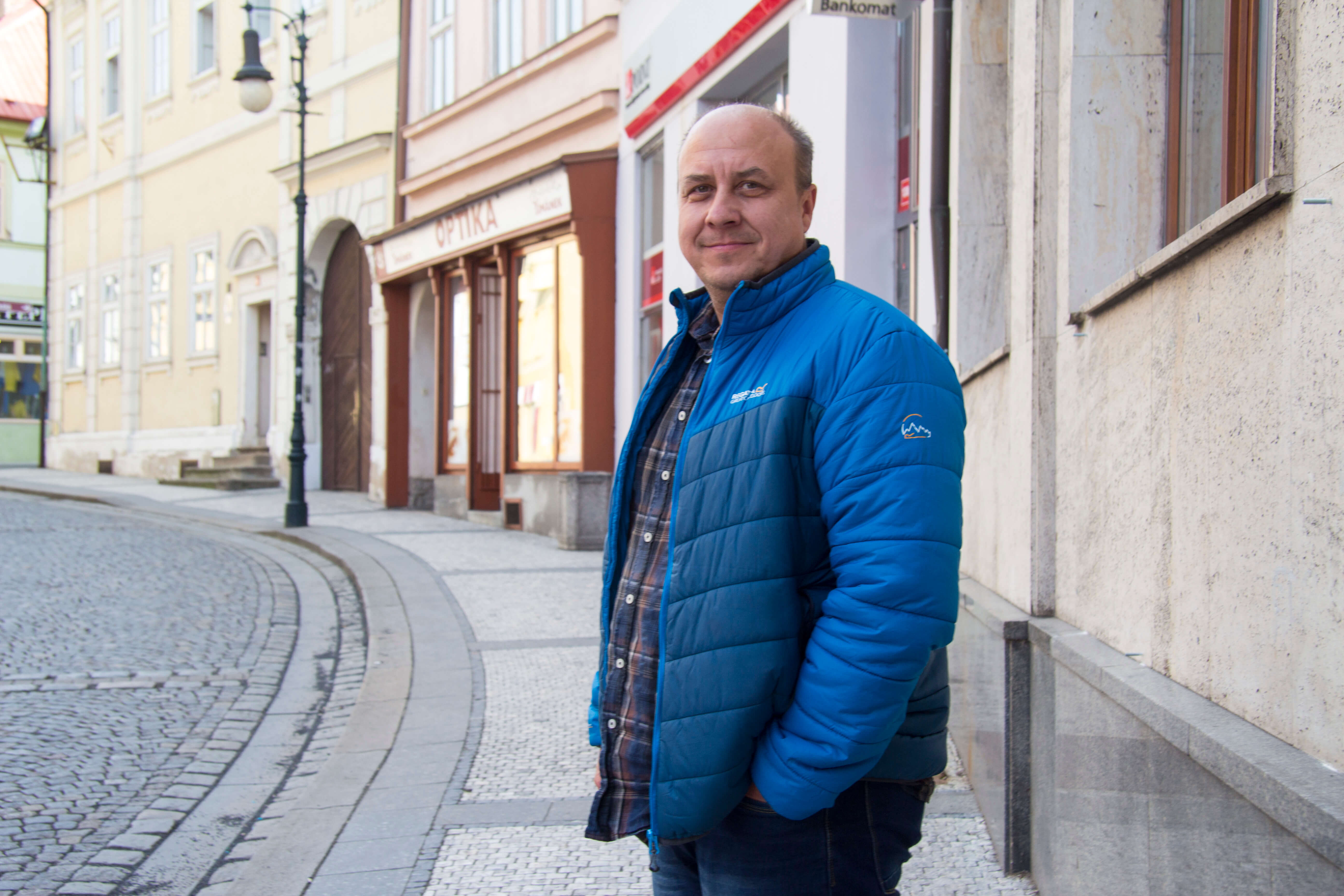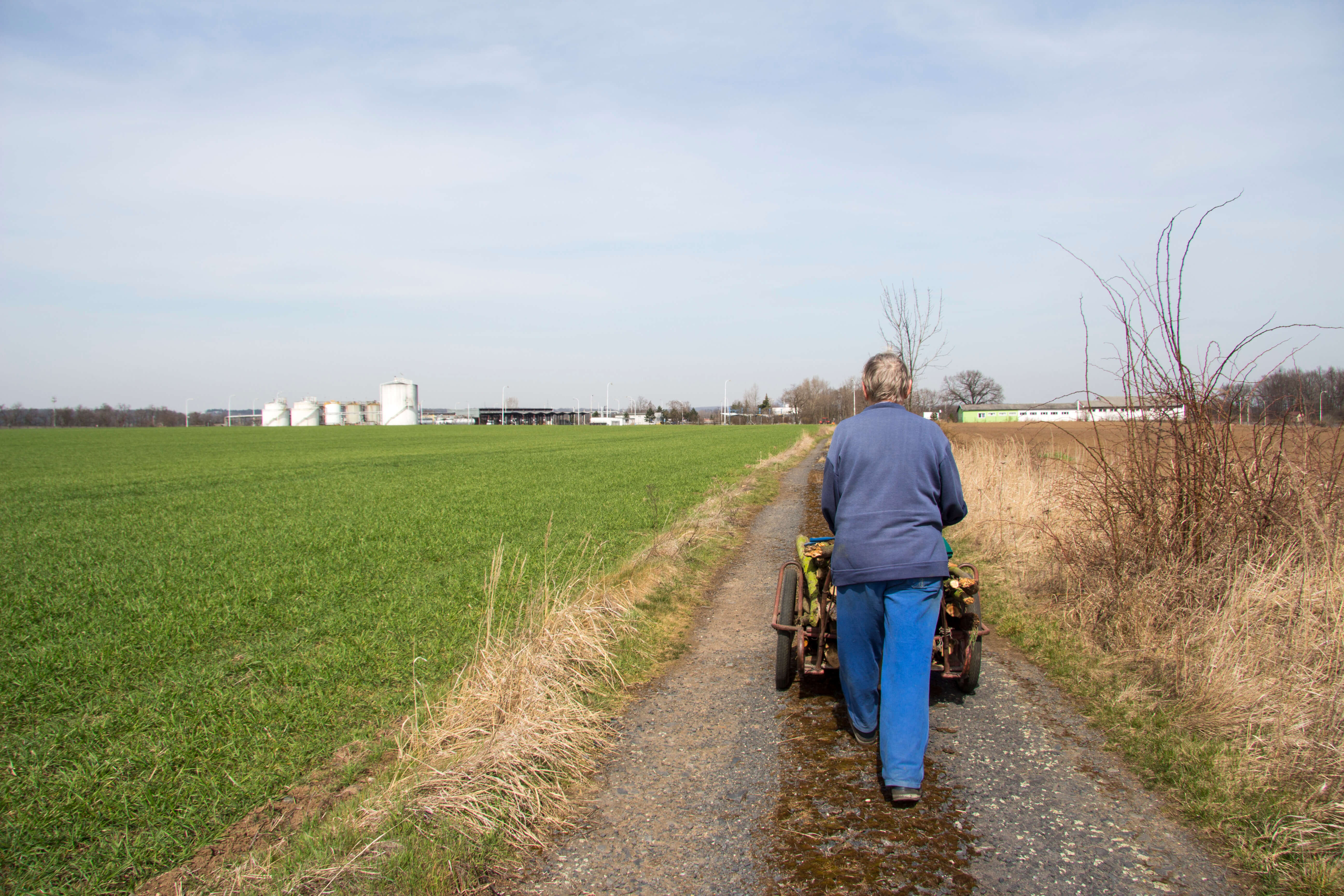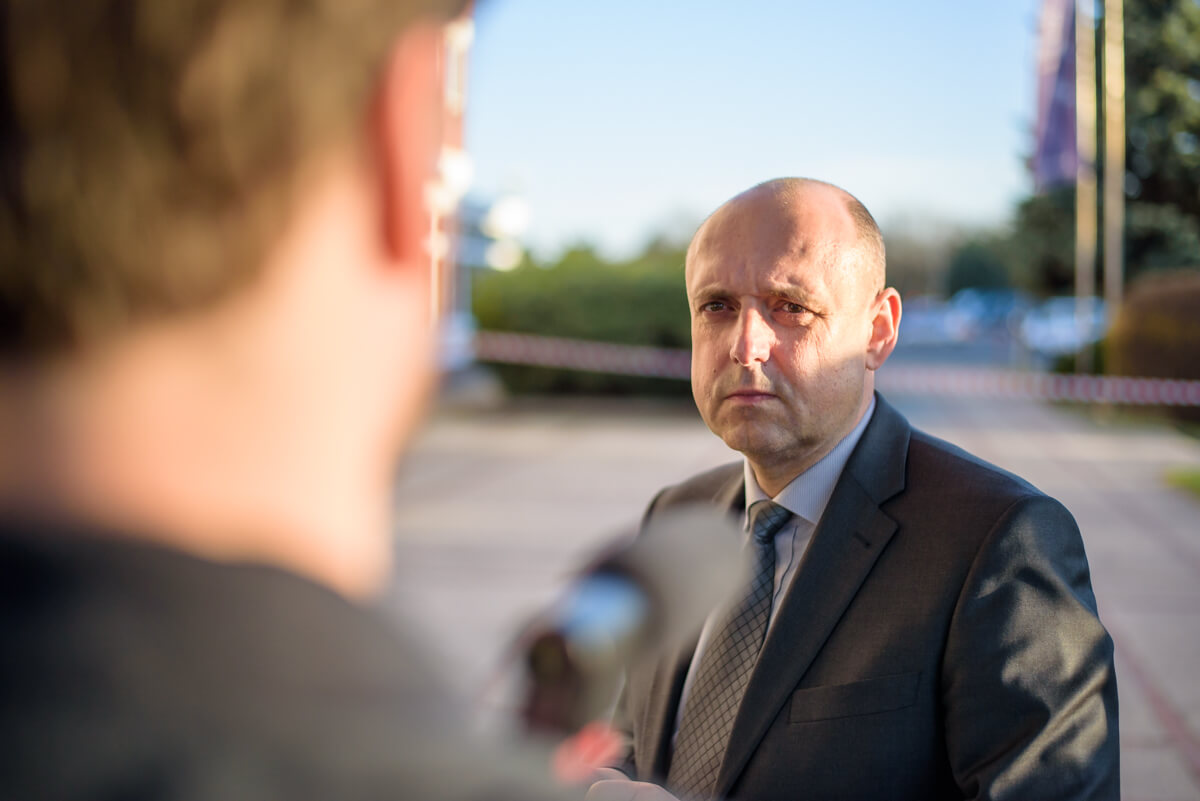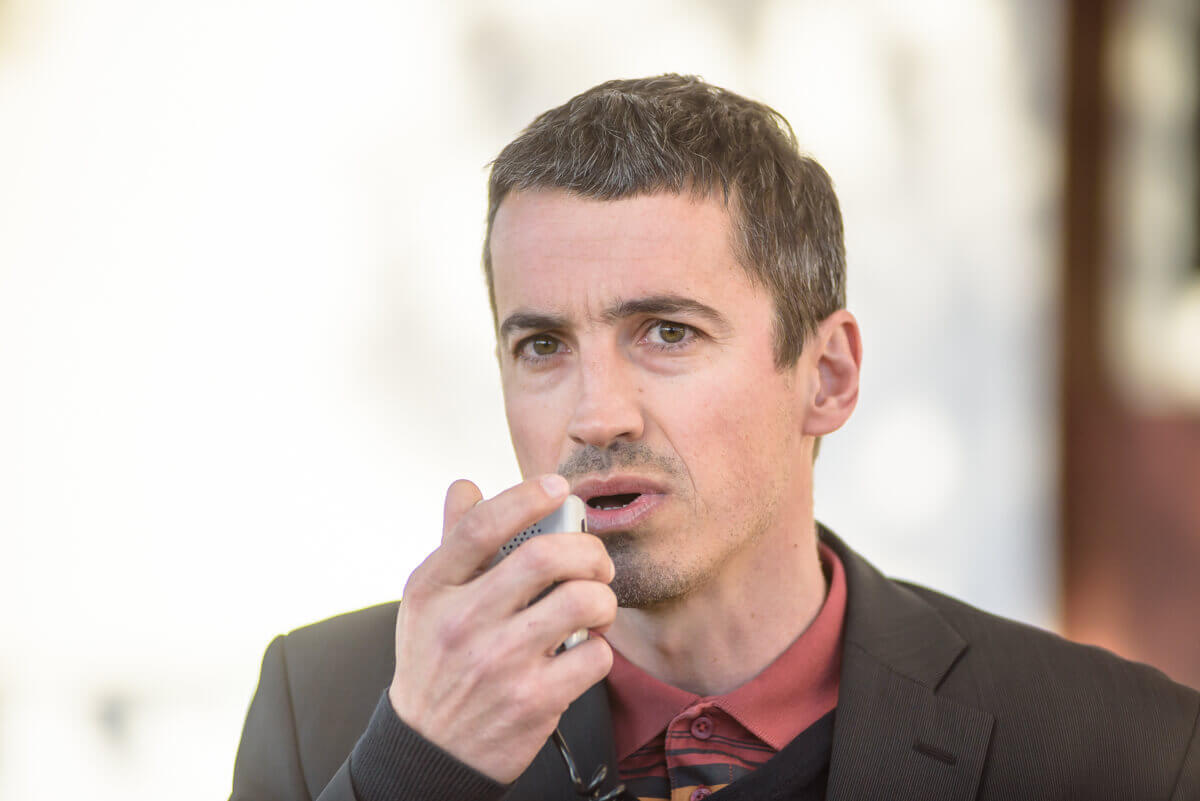Around 9 AM, the machine detecting gas in the air started beeping. It emitted this warning signal for an hour before an explosion killed six people and seriously injured two others. At the time, twelve workers from four different companies were in the storage tanks of the Unipetrol RPA refinery. Five Romanian laborers were working on scaffolding near one of the cisterns, supervised by their Czech superior Ondřej M. One of the more experienced Romanians repeatedly warned his superior about the analyzer’s signal. The manager nevertheless had them continue dismantling the reserve valves – the work was to be finished fast. According to eyewitnesses’ accounts, the explosion was caused by aeroterm, a tool used to dry and fortify the coats of paint on the cisterns. When the aeroterm was plugged into the mains, a spark was created, igniting the accumulated gases. The director of the Research Institute for Safety in the Workplace, Stanislav Malý, was quoted by the Mladá fronta DNES daily, claiming an oxyacetylene torch and a grinder were also found near the explosion, so it is likely that this was caused by the use of one of these tools.
The precise cause of the tragedy will be revealed by the investigation. A number of doubts, however, remain: had Unipetrol allowed the laborers to use electrical power tools where there was a risk of explosive gases accumulating? Why did they continue despite the warning signal? Were the laborers adequately trained to work in high-risk environments? Did they have valid contracts? Even two months after the explosion, the police could not identify one of the bodies.
The fact that the laborers were part of a long chain of sub-supplier companies also raises some questions. Unipetrol hired Bilfinger Euromont for maintenance work. The company has been acting actively in the field since the mid-90s and is among the main engineering suppliers in the petrochemical industry. The company was responsible for work on the storage tanks and was represented by its employee, Ondřej M. Bilfinger Euromont then sub-contracted Envir-invest, based in Ústí nad Labem, which mostly employs workers from Romania, Ukraine, or Moldova.

Unknown Dead Foreigners
Ion Pandele (47), from Tinos in Romania’s Prahova County, had been working for Envir-invest for over ten years, making him the most experienced of the laborers. His colleague Constantin Brânzaru (55) had been working in the Czech Republic since 2011. According to Romanian daily Adevarul, he was saving up for construction work on his son’s house, and his plan was to retire in a year’s time and return to Romania. His wife claims he worked in dangerous conditions without a contract. “They had no business being there. They only had a contract for two years, which they were not told about,” she stated for Adevarul.
Marian Iulian Mihăilescu (31) from Ploieşti and Georgian Cătălin Ştefan (24) from Titu were other victims of the explosion. The identity of one of the six tragically deceased workers was still unknown a month after the explosion. The Central Bohemian Police claims it is waiting for the results of a genetic analysis, but even that might not shed any light on his identity. At least one person was on site without a contract, and his identity was probably also unknown to the company he worked for. Jan Hron, a representative of Envir-invest, refused to comment on the issue.
Unipetrol RPA insists that it knows exactly who is working on their premises at any given time. “We employ specialized companies for these contracts. The training they receive before entering the compound is the same our employees receive. If necessary, the training is given in other languages. Safety always comes first for us, and the rules apply to everyone,” said the director of communications Jiří Hájek after a remembrance gathering for the deceased workers. The event, which took place in front of the entrance to the refinery, was organized by an independent initiative Work Mustn’t Kill (Práce nesmí zabíjet), which formed in response to the tragedy. It is a collective of activists and trade unionists campaigning for an in-depth investigation and better conditions for the workers.

Jiří Hájek’s statement was confirmed by the chairman of the Czech Refineries trade union, Martin Machačný: “When entering the compound, all employees must have a card confirming they have undergone security training. Without it, nobody can get in – cannot even touch a screw,” claims Machačný, adding that “if it is downright impossible to lead the training course in the worker’s native language, an interpreter must be present. The safety videos are recorded in Czech, English, German, and Polish.”
Improvising Instead of Training
Nicolae, a Romanian worker who has been at Envir-invest for two years, describes a different experience with the safety training. He had spent two days working with the deceased laborers on a pipe montage near the explosion, and he had known some of them for years. “The training was quite long, around two or three hours. But it was all in Czech, so I got close to someone who understood more and tried to find out something. Some things you understand from the illustrations, some were explained by someone who understands the language better. Unfortunately, it is a kind of improvisation,” explained Nicolae during our meeting in a restaurant in Most. He claims the training was more of a formality, as even the paper the workers had to sign was in Czech only. “It’s no good, the papers are almost always in Czech. During my career in the Czech Republic, only one company provided training and materials in English,” he claims.
Nicolae also mentioned that the director of Euromont spoke to all the Envir-invest employees after the explosion, instructing them not to speak to journalists about the event. Nicolae chose to speak to us despite these instructions. In order to protect him, we use a false identity.
He himself has an indefinite duration contract, but he claims others work on short-term contracts or altogether illegally. Montage work for Euromont is often done under pressure, he says, and the laborers are asked for the impossible. Asked whether this could have been one of the causes of the tragic explosion, he replied: “It’s simple – it’s financial interests. The work had to be finished by the set date – they wanted a lot of work very fast.
Nicolae emphasizes that the fault lies not only with the Czech bosses and their unrealistic demands but also with his compatriots and co-workers, who refuse to stand up to them. “They are afraid of losing their jobs; they have families they need to support. They won’t tell their boss they won’t work under inadequate conditions,” he ruminates, adding that he himself is not afraid of raising his voice. “On some days, we work more than twelve hours. Especially during this last contract for Mero, we are under great pressure. The bosses won’t threaten to sack you, they just gently suggest you need to work more,” he describes his experience working for Mero, a state-owned company operating pipelines and storage for petrol and fuel.

Impossible Deadlines
Nicolae confirms that it is usually unqualified workers from the Romanian countryside that come to work in the Czech Republic. They are used to hard work, they don’t know their rights, and they won’t fight for their interests against the employers’ will. “Unfortunately, many of them are even illiterate, and you can’t explain to them that it isn’t good to work too much or to accept disadvantageous conditions. If you tell them to use a fifty-kilogram hammer, they’ll do it. They’re willing to do what would usually be a day’s work in two hours,” claims Nicolae. Envir-invest sends its employees to work in high-risk environments with highly flammable substances. The workers are often working towards impossible deadlines, gladly accepting overtime in order to earn higher wages. If they fail to comply with the safety regulations or if their linguistic understanding of these is insufficient, the risk of an accident increases considerably.
“Illiterate workers make it into the refinery too, but there has to be someone responsible for them in the workplace. In Kralupy, this was an inexperienced Euromont worker, who was only qualified on paper – his colleagues expressed doubts about whether he was fit for the work.” These are Nicolae’s thoughts as to why Ondřej M. let his subordinates work despite the warning signal. In his opinion, Unipetrol carries most of the blame, as it allowed the laborers to work in an environment full of explosive gases. “For every piece of work, the compound’s administrator – in this case, Unipetrol – has to issue the appropriate permission. A supervisor from the company then makes sure the plan is being followed and the conditions fulfilled,” adds Nicolae.
Trade unionist Martin Machačný, however, claims that there could have been no gas in the tank, as it had been out of use for eight years and open for about a year. “The investigation will show what caused the explosion. I don’t know. Maintenance works were being carried out on the tank for some time now, it had been sanded down and painted, and was being prepared to resume function,” explains the unionist. Given the ongoing investigation, he doesn’t want to give details, but he confirms that the laborers certainly had a gas detector with them. “In the security training, this is listed as one of the reasons for immediately ceasing work and leaving. It doesn’t matter whether a superior tells you to keep working,” claims Machačný.

The Insecurity Grows
The media mostly focused on the potential danger to Kralupy nad Vltavou, but the explosion happened only a few hundred meters from the residential housing in a smaller neighboring town, Veltrusy. You can see the distribution compound from Veltrusy, and the locals clearly heard the explosion, fearing the fire might spread or chemicals might escape into the atmosphere. At the time of the explosion, around five hundred children were in a school only a kilometer away. For the first five minutes, the citizens of Veltrusy received no official information, but thankfully, it soon transpired that they were not in danger. “The first information I got was from the media. Unipetrol only contacted me about three hours after the event, which is very late. It would have been enough to get some information a few minutes after the explosion – whether or not we should evacuate the school, for example,” says Filip Volák, mayor of Veltrusy.
Jiří Hájek, director of communications at Unipetrol, does not believe there is a problem: “This is a technical matter. The information sent by email was labeled as a press statement, and it was sent to the media as well as the municipalities and certain organizations. We could only divulge information when this was confirmed by the emergency services,” he explained in response to the complaints.
Asked whether he sees the presence of the refinery as a threat to the city’s inhabitants, the mayor responded tentatively: “I feel like there is not enough infrastructure investment. Over the last few years, Unipetrol has made a considerable profit. I see the explosion in the refinery as an example of the company’s untrustworthiness. Not to mention their support for ecology or education in the town – it is symbolic, in the realm of tens of thousands of crowns (thousands of euros),” says the mayor, adding: “The chemical production compound negatively impacts everyday life in Veltrusy: there is often an unpleasant chemical smell in the streets and at night, you can clearly hear a loud noise from the waste gas burner.”
Apart from their meager contributions to the municipal budget, the mayor is displeased that what was then Czech Refineries (which merged with Unipetrol RPA at the beginning of 2017 and no longer exists) shut down a monitoring station that measured the concentration of noxious fumes emitted by the chemical plant. “Nobody considers the cumulative effect of all the sources of pollution,” adds the mayor. He is apparently in negotiation with the company to renew the station. He would appreciate if the company were to invest in technology, safety, and crisis management in order to minimize their impact on the life of the citizens and to avoid further accidents. “I would gladly exchange the economic gains the company brings to our region for safety and at least a slight improvement to the environment. So far – and this includes the latest accident – I feel like the uncertainty is growing,” concluded mayor Filip Volák.

Profits are on the Rise, but There’s No End to the Economising
Around three hundred Unipetrol employees work in the refinery in Kralupy nad Vltavou, most of them as production operators or lab workers. According to the union boss at the company, Martin Machačný, the company has recently been affected by generational shifts and insufficient labor supply, which the current employees compensate with overtime. Result: fewer people doing more work than before. Unipetrol sub-contracts other companies for all maintenance works. Unipetrol brought its Polish owner, PKN Orlen, 8.7 billion CZK (ca. 350 000 EUR). Income and production are on the rise.
Just right after the tragedy, the company paused the production and external companies undertook general maintenance of the entire site. Around 1500 external employees took part in these works. In the case of work on the storage tank, there was a chain of supply. Bilfinger Euromont, which was supposed to re, hired Envir-invest, probably due to both savings and insufficient laborers. At the end of this chain is, among others, the unknown deceased Romanian worker.
The chain of unclear commercial and labor relationships between the contracting and contracted parties allow the companies not only to lower their labor costs and abuse foreigners’ lower standing but also to rid itself of responsibility in case there are any problems. A company that hires foreign workers through an intermediary wants to avoid responsibility for their labor and salary conditions. In the case of the explosion in Kralupy, we must be watchful as to how the labor inspectorate will deal with the complex sub-contract relationships, and who will bear responsibility for the disaster.
Unipetrol denies that the unclear sub-contracting structure could be one of the causes of the accident. “We carefully select our sub-contractors in selection procedures, in which we focus not only on their technical expertise but also on their qualification and all the necessary authorisations,” said Pavel Kaidl, spokesman of the company. He insists that the high standards of safety and movement in the workplace apply to both the company’s employees and workers from sub-contracting companies.
Mistaken Promises
“Many of my compatriots offer work in newspaper ads or on the internet. They promise a lot – heaps of cash, beautiful accommodation – but the reality is completely different. These are people that exploit other Romanians, especially those from poorer parts of the country, often without much education,” says Nicolae about his experience with work in the Czech Republic. He advises his fellow Romanians to look into the company that is mediating the work.
His words are confirmed by Vít Prudil, a social worker with Diakonie, the charitable organization of the Evangelical Church of Czech Brethren. He has mostly experienced exploitation of foreigners in the Central Bohemian Region. “Most often, we encounter unpaid wages or lacking medical and health insurance,” says Prudil.
Nicolae doesn’t want to stay in his current employment for long, but so far, he doesn’t know what to do next. The death of his colleagues was a heavy blow: “I was shocked, of course, and I considered leaving straight away. But in the end, I said to myself – you can die anywhere,” he says with resignation, “I would be very happy if the truth came out. But in the end, the blame will always lie with the dead. Unipetrol is a large European company and it has to come out clean.”
**
![Political Critique [DISCONTINUED]](http://politicalcritique.org/wp-content/uploads/2015/09/Political-Critique-LOGO.png)
![Political Critique [DISCONTINUED]](http://politicalcritique.org/wp-content/uploads/2015/09/Political-Critique-LOGO-2.png)